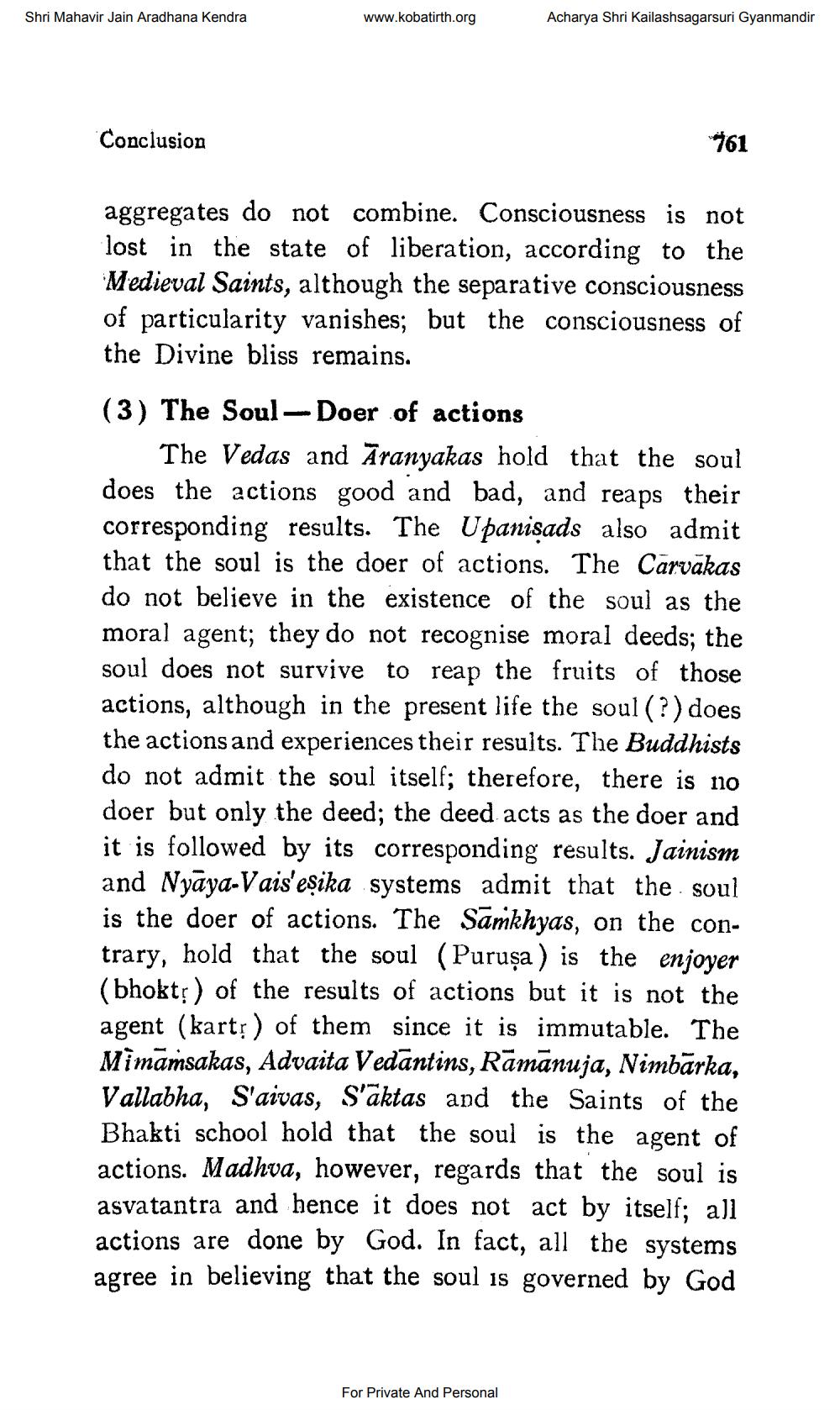________________
Shri Mahavir Jain Aradhana Kendra
www.kobatirth.org
Acharya Shri Kailashsagarsuri Gyanmandir
Conclusion
761
aggregates do not combine. Consciousness is not lost in the state of liberation, according to the Medieval Saints, although the separative consciousness of particularity vanishes; but the consciousness of the Divine bliss remains. (3) The Soul - Doer of actions
The Vedas and Āranyakas hold that the soul does the actions good and bad, and reaps their corresponding results. The Upanişads also admit that the soul is the doer of actions. The Carvakas do not believe in the existence of the soul as the moral agent; they do not recognise moral deeds; the soul does not survive to reap the fruits of those actions, although in the present life the soul(?) does the actions and experiences their results. The Buddhists do not admit the soul itself; therefore, there is no doer but only the deed; the deed acts as the doer and it is followed by its corresponding results. Jainism and Nyāya-Vais'eșika systems admit that the soul is the doer of actions. The Sāmkhyas, on the contrary, hold that the soul (Puruşa ) is the enjoyer (bhokt) of the results of actions but it is not the agent (kartr) of them since it is immutable. The Mimamsakas, Advaita Vedāntins, Rāmānuja, Nimbārka, Vallabha, Saivas, S'aktas and the Saints of the Bhakti school hold that the soul is the agent of actions. Madhva, however, regards that the soul is asvatantra and hence it does not act by itself; all actions are done by God. In fact, all the systems agree in believing that the soul is governed by God
For Private And Personal




